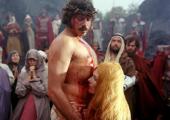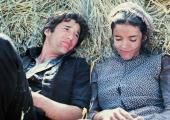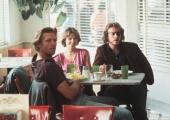New print of classic work of post-modernism for summer bafflement
It is all in black and white, and undoubtedly very beautiful. Delphine Seyrig, the flighty, baffled siren at its heart, is undoubtedly very beautiful. The setting, which could be Versailles or a château in the Loire (it was in fact filmed at palaces in Bavaria), is undoubtedly very beautiful. The 1950s society mannequins, men in black tie, women in Coco Chanel, who're mysteriously occupying a central European spa hotel are undoubtedly very beautiful. It was undoubtedly directed, in 1961, by the then more or less unknown Alain Resnais and scripted by the better-known Alain Robbe-Grillet (author of Le Voyeur, 1955, and La Jalousie, 1957). Beauty agreed, it must be admitted that Last Year in Marienbad also remains as impenetrable on its rerelease as it was 50 years ago.
It is all in black and white, and undoubtedly very beautiful. Delphine Seyrig, the flighty, baffled siren at its heart, is undoubtedly very beautiful. The setting, which could be Versailles or a château in the Loire (it was in fact filmed at palaces in Bavaria), is undoubtedly very beautiful. The 1950s society mannequins, men in black tie, women in Coco Chanel, who're mysteriously occupying a central European spa hotel are undoubtedly very beautiful. It was undoubtedly directed, in 1961, by the then more or less unknown Alain Resnais and scripted by the better-known Alain Robbe-Grillet (author of Le Voyeur, 1955, and La Jalousie, 1957). Beauty agreed, it must be admitted that Last Year in Marienbad also remains as impenetrable on its rerelease as it was 50 years ago.










